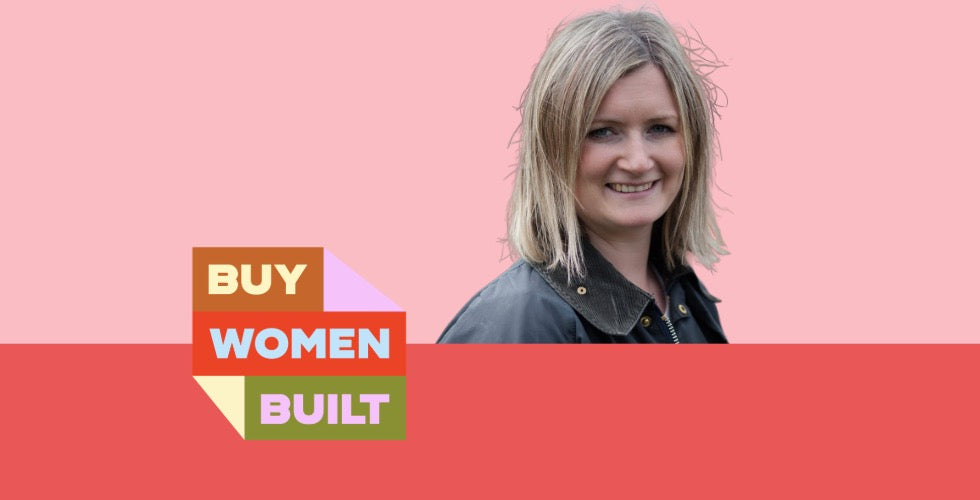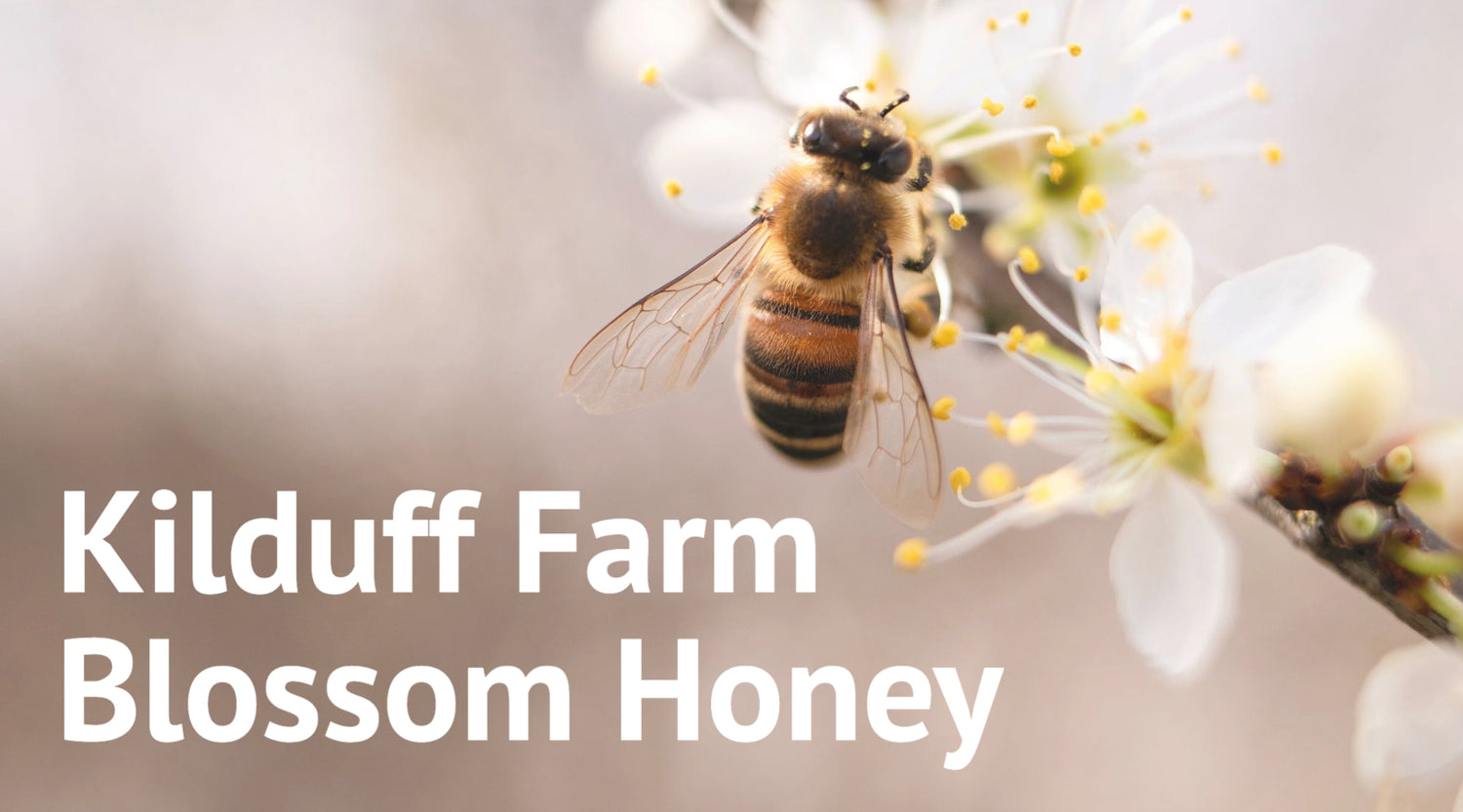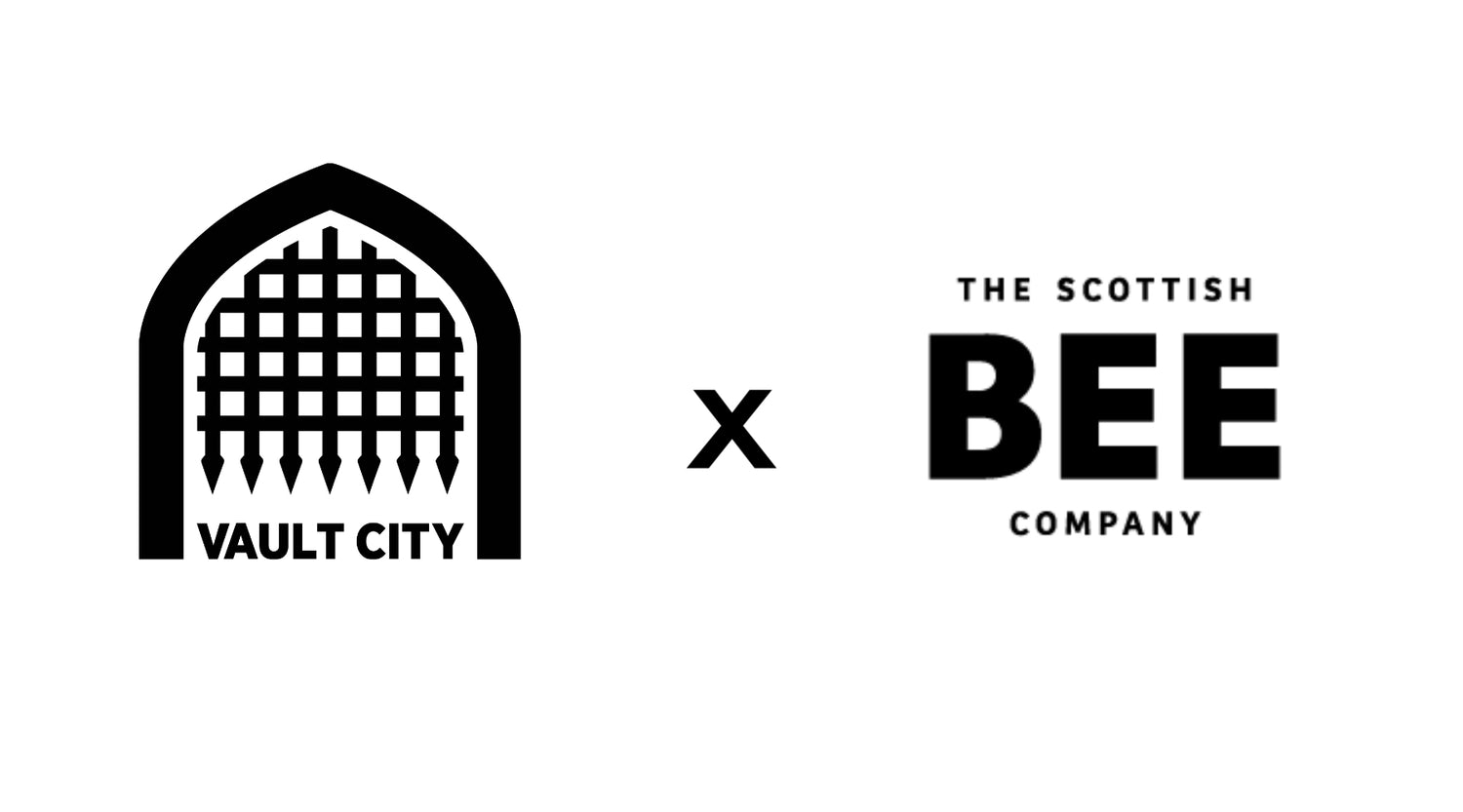A bit about The Scottish Bee Company
As you may have gathered from the bee and hive themed questions throughout my previous chats with guests, I run a honey company alongside my husband!
What stared as a charity idea, our passion for doing something for the climate crisis grew arms, legs (and wings) to become The Scottish Bee Company. An award-winning honey company that aims to protect the pollinator population with a planet focussed business model.
Our journey, like everyones, hasn’t been linear and I wanted to share our story and what we’ve learnt from starting up in 2017. I chat about the reality of ‘save the bees’, fraudulent honey producers and the importance of provenance in the industry and our BSI Kitemark. Having taken a honey sommelier course myself, I am massively interested in everything the industry has to offer and I truly believe with more knowledge across the board, everyone will feel the same passion we do!
The more we learn about the industry, through courses and our bee farmers, the more our business model and plans adapt and change to suit the demands of our pollinators and planet - everyday really is a school day! I was over the moon to appear on a panel talk hosted at COP26, listen until the end to hear about the topics we covered.
As always I’m grateful for every download of the podcast and all the support over at The Scottish Bee Company. Keep in the loop by signing up to our newsletter at the bottom of website, which includes weekly updates and exclusive discounts!
https://www.scottishbeecompany.co.uk
Take care,
Suz
Transcript
Suzie Millar 0:21
Hi, everyone, welcome to this week's episode of Think Outside your hive. Today, I thought it would be really useful to just give a little bit of a background about how and why we set up the Scottish Bee Company.
So about five years ago, my husband Ian, and I kept talking about climate change, and what could we possibly do to to help with everything. And we, we sort of thought, well, what we could do is we could set up a business that would do something for the environment. But we had absolutely no idea what that was. Then at the time, Ian went and studied business in the States. And when he was there, this was like 2016, I would say, there was a lot of chat about this new concept of what's known as a B Corp. So it was quite big in the states then, but at the time, I think there's maybe only two people that signed up to to become a B Corp in the UK. When we were there, we just absolutely fell in love with this idea that you could make a profit, but you could still be socially and environmentally responsible. This concept of profits with purpose kind of came into our brains and we thought, well, that completely ties in so nicely with this idea of wanting to help make a change for the environment.
At the time, we were thinking about setting up a charity. What's funny is that at the time, you don't quite realise until you look back that all these things have been completely lined up for you to do this. Because just by accident, we read an article about Scottish Heather honey and how it was akin to manuka honey, but that nobody was really doing anything about that. And Manuka had the monopoly for the healthy honey across the whole world, and yet, there was evidence that Scottish honey had lots of health benefits, but we didn't quite know what they were yet.
Then when we looked further into it, we realised that bee farmers in the UK had no access to funding as a farmer would. So you can imagine for a bee farmer, it costs about 250 to 300 pounds to set up just one hive. And there was absolutely no funding available because they didn't fall under the category of a farm because they didn't own the land that they were farming. So although they helped farmers to pollinate their land, because they put bees onto the land, there was no funding available because they did not own that land. So it was a real problem for bee farmers to be able to get funding. So we then thought, well, actually, we would really like to be able to tie these two things together. So that was the social responsibility part, being able to look after bee farmers, at the same time as selling honey.
And I had a chat with my uncle who had set up multiple businesses before and he also farmed honey over in Thailand. And I said, Oh, I've got this idea, you know, quite fancy selling honey across the world and becoming a kind of global brand and really pushing the idea of Scottish Heather honey across the world. And he was like, No, don't be silly, you're never going to be able to do that, honey is impossible to transfer across the world. And I was like, Alright, okay, and the way that my brain works is that I thought, well, you're telling me not to do it. But now I really want to do it! But anyway, a couple of weeks later, he phoned me up and said, I've been thinking about this idea, I actually think there's a way that we can make it work. But it has to be really, really focused on this environmental aspect as well, which is what we wanted. So it was perfect. And he helped us get set up in business.
We started trading in 2017. And the whole purpose behind the business was that we wanted to be able to look after bee farmers who wanted to increase the numbers across Scotland. And we wanted to be an example of a profits with purpose business. However, very quickly, we realised that it wasn't just the honeybees that were in decline - it was a severe decline in pollinators. At the time, there was a lot of messaging around hashtag save the bees. So it was very, very big about saving the bees. And so we felt like by putting hives out into the environment, we were saving and looking after bees. It then became very apparent that it wasn't just bees or honey bees that were having issues. Honey bees are actually as long as they're managed, they're actually okay as long as there are hives there for them. But all other types of bees and pollinators were at severe risk. And so we wanted to make sure that we were doing something for all of them.
So very quickly, we set up the charity Repollinate. At Repollinate, what we do is we donate money, so every time you buy anything from the Scottish Bee Company, 10 Pence is donated to Repollinate. And because of COVID, we haven't actually been able to get the project set up because the timescale hasn't been quite right. But this coming year, we have multiple projects going on across the UK that will provide beds for pollinators. So we basically will plant loads of wildflower seeds, and make sure that all types of pollinators are looked after in various local communities. So if you know of anybody that is interested in getting involved in this project, please email us because at scottishbeecompany.co.uk. We have a wonderful team of people working with Repollinate now, and I see that it's going to go far. I'll be doing a podcast next year about Repollinate specifically and how you can get involved more but in the interim period, if you are interested, please just email us.
So about a year after we started the honey company, we realised that there was a severe problem across the world with honey fraud. And that honey is actually on Interpol's list of one of the most fraudulent products that is out there. The reason for that is that people don't realise that they're committing fraud. So for instance, they'll sell a mono floral that would be like a heather honey or a lavender, honey etc. And they'll have used other types of honey in there to mix it to be able to get it to set properly. And it's a genuine mistake. And people don't know that that's what they're doing. Other times people are sending off honey to China, and having it made fraudulently in the factory.
Because we realised this, I went on the Sommellier course and started to learn a lot more about honey. And then we got the kite mark for our Scottish Heather honey. Now the reason that we have like a mark for Scottish Hethear honey and not for the other types of honey, in the beginning, we were too small to be able to afford to do more than one product. So we focused very much on the Heather honey because it was the one that was the most important as it was a one floral honey. So we teamed up with BSI and we became the first ever food product to get the British Kite mark for food provenance. Which means that when you buy a jar of our Scottish Heather honey, you can get be guaranteed that it is from Scotland, it is Heather, and that it is honey. And we do multiple tests with various different partners. And we have audits to make sure that those things are true.
We've also won awards for our honey from in terms of tastes, so we want a great taste award. And we've also won Platinum Award at London honey awards. The London Honey awards are really prestigious. If you know anything about honey, then you'll know about the London Honey awards.
Also if you buy gifts from us, they will come with a pack of wildflower seeds that you can scatter. We donate money to Repollinate with every purchase that you buy. So we are really intent on looking after the environment.
The other thing that we're intent on looking after is our people. So we give hives and bees to bee farmers across Scotland to help them get into business. And we always pay market rate for the honey - we never undercut. So we make sure that our bee farmers are looked after. We set up an apprenticeship for bee farming and Katie has completed that and she now works for us there was the first apprenticeship that ever existed in Scotland for bee farming.
We have also set up another apprenticeship in digital marketing. And we're absolutely passionate about making sure that the people that work for us feel like they're getting trained properly. So we encourage them to go on training programmes as much as they possibly can.
We pay a living wage. And quite frankly, I think everybody should be paying a living wage. So we pay more than a living wage to our staff, which is difficult for us because we're a startup. So it is hard to be able to do things like that. But I think that it's important. So we look after people and we look after the environment. That's our aim. That's the thing that gets us up every day. That's the thing that when it's difficult at work, keeps us going and it keeps us motivated.
We are really excited to see what happens at COP 26. I think that pollination can have a real part to play in the aim to reduce carbon. The reason that pollination is so key for reducing carbon is that around about 75% of all of our crops rely on pollinators. So without them we would not be able to eat properly and there also be a massive reduction in jobs for farmers etc. However, what's overlooked is the fact that nearly 90% of all the species of flowering plants are actually pollinated by insects like butterflies and bees and also birds and bats.
So today, I was supposed to be going through to Glasgow to Cop 26 to appear on a panel about showcasing Scotland's commitment. It was all about driving transformational change. Sadly, both of my children have chickenpox, which meant that at one o'clock in the morning, I frantically messaged the organiser and said, Would they please please, please be able to get me online instead of being there in person. And they did. And I feel like I've done my part for the world as I haven't travelled through my car to Glasgow, I've sat in my house. And whilst my children wander around with chickenpox.
So at the panel today, it was absolutely fascinating to see what plan is within Scotland for getting more people trained up in core skills that will transfer across industries to make sure that apprenticeship schemes and universities and colleges have the right skill sets for young people to be able to transfer across industries. One of the main problems that we see in the bee farming world is very much akin to the farming world, and that is that the average age of farmers bee farmers is 65. There are hardly any young people working within that industry. And since COVID, and Brexit, the temporary workforces has lessened and almost disappeared. So the only way that we have seen that you can get new people to come into the be farming world is through apprenticeships. And that's also the only way that you can kind of standardise the training that that these people get one of the topics at the conference was all about rescaling and upskilling, and how over the course of the next 30 years (and certainly this generation moving forwards), it's not going to be a linear career that people take on this, you're going to be jumping around and evolving and adapting to new landscapes. You've seen it in the past couple of years, industries just wiped out from Covid, but then suddenly new industries emerging into the workforce will be should be prepared for this kind of concept of going to university doing an apprenticeship when you're younger. But then in 10 years time upskilling or rescaling and learning a new a new skill that you can then move into a different part of industry with, which is really exciting.
One of the questions that was asked was how do you attract a younger workforce into green jobs? One of my feelings was that I don't really think you need to worry about attracting people into that because I have very much seen among our workforce that people don't care as much about salary. Of course, of course they care whether they can pay for their bills, etc. But they want to work for people who are environmentally and socially responsible. It's a big drive for the younger people coming through. They want to know that the business that they're working for is not exploiting the land or exploiting people. And it's important to them.
I have to say that the the talk and the panel that I just attended was hugely uplifting. You just have to hear all these people's stories about things that are going on in this country about wind farms and different types of technology all green based and I think it's it's really exciting. I think we can get dragged down in the doom and gloom that we may never manage to achieve net zero, but I think that having seen what everyone's doing out in the world, I think there's a very real chance that we can do this and I'm super excited to be involved in it.
I really just want you to get involved as listeners with ways that you can help us with our pledge to try to increase the amount of pollination across Scotland, please email and ideas buzz@Scottishbeecompany.co.uk. We regularly send out updates through our newsletter along with various different types of competitions and different types of discounts. Our newsletter can be accessed on our website: www.scottishbeecompany.co.uk







1 comment
A really inspiring story! I can’t wait to see where you take this business. Thanks so much for looking out for our pollinators amongst all the other great work you do!